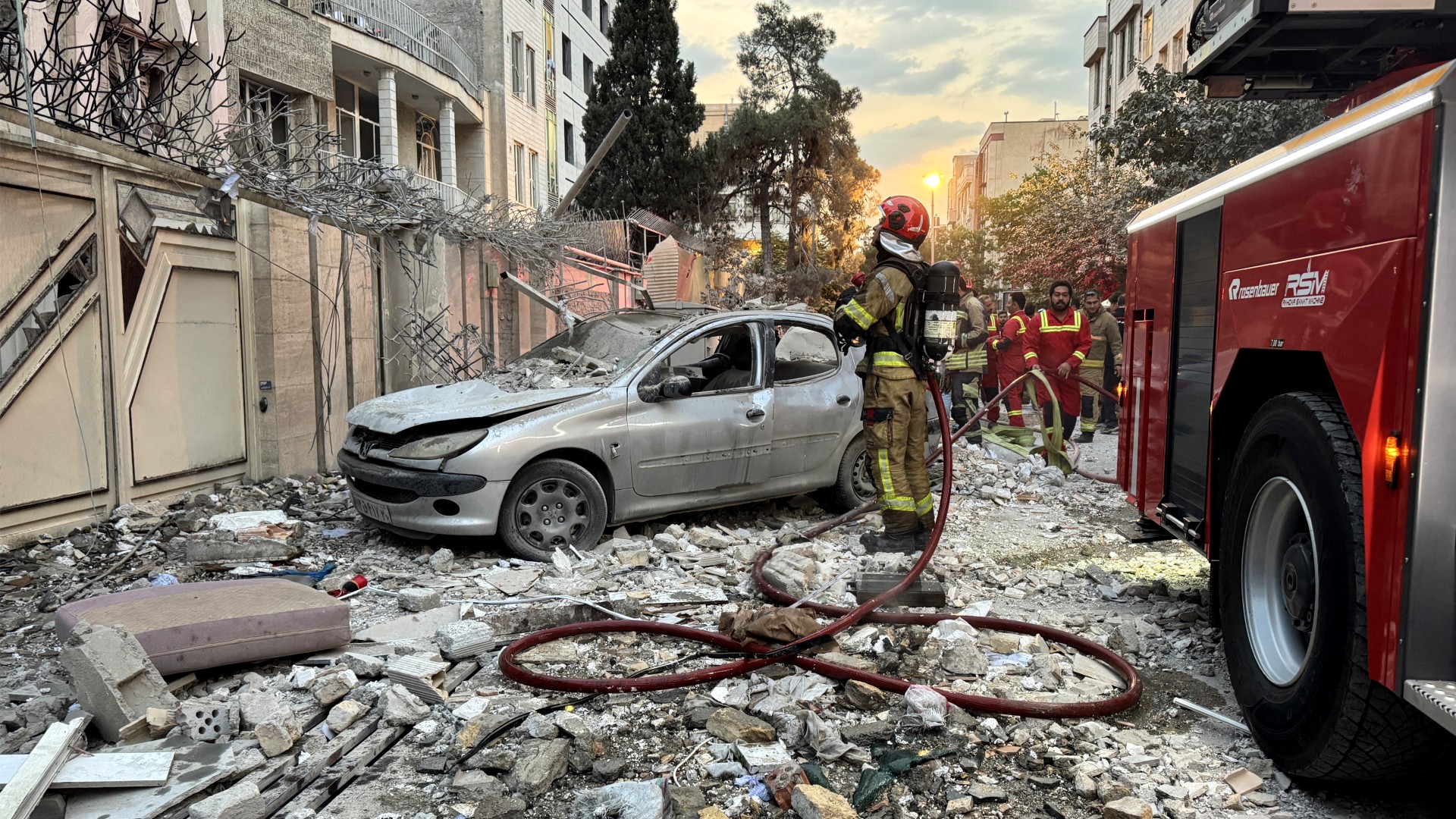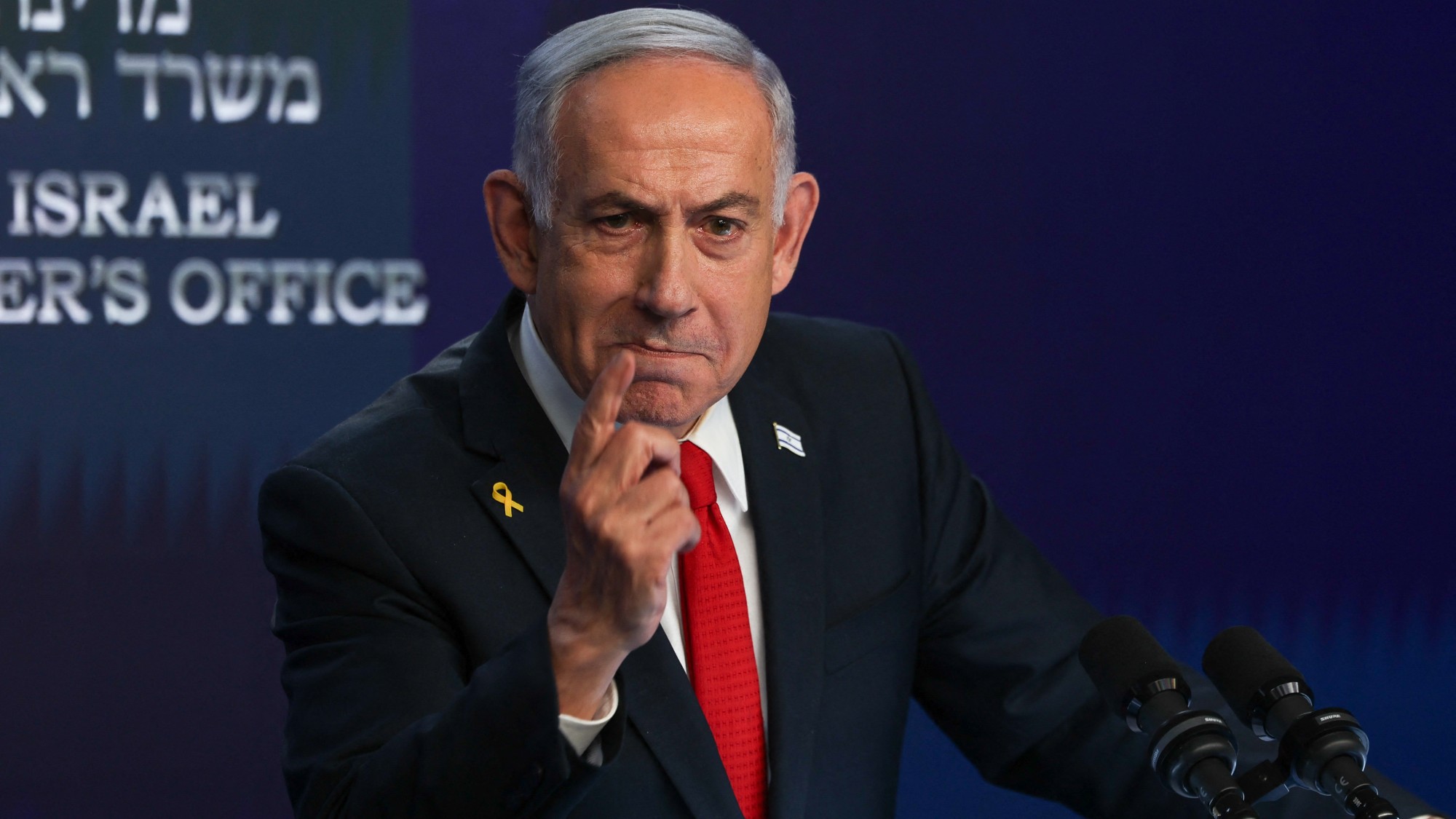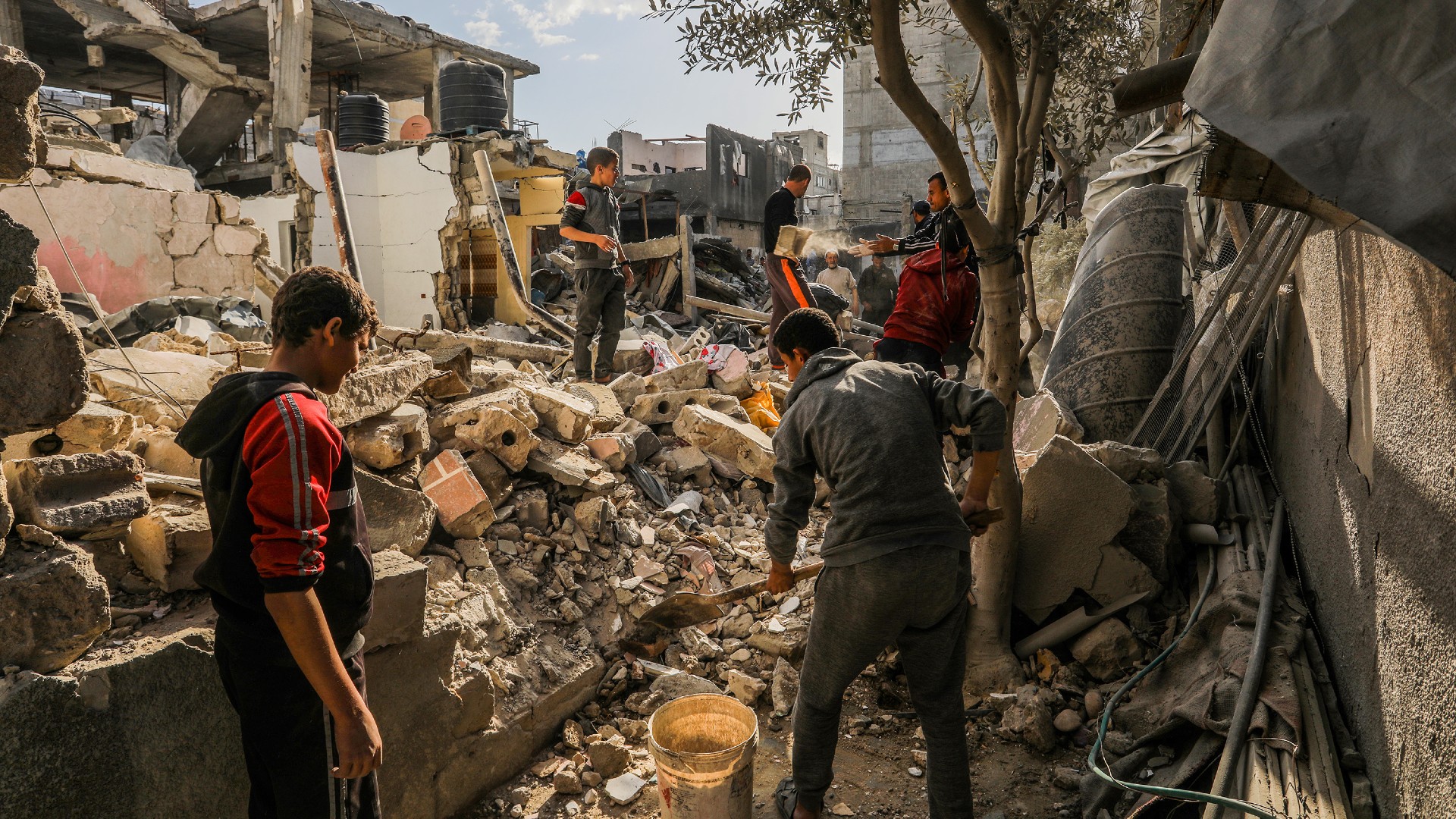Who are the Houthi rebels in Yemen?
Latest US-UK strikes against Houthi rebels send 'clearest possible message' that they must stop Red Sea attacks

A free daily email with the biggest news stories of the day – and the best features from TheWeek.com
You are now subscribed
Your newsletter sign-up was successful
The US and UK have carried out a second major wave of air strikes against the Houthis in Yemen in less than a fortnight.
Last night's joint attacks hit eight targets, including radars, missile sites and underground weapons storage bunkers, according to the Pentagon.
Foreign Secretary David Cameron said the allies wanted to send "the clearest possible message" that the Houthis must stop attacking ships in the Red Sea.
The Week
Escape your echo chamber. Get the facts behind the news, plus analysis from multiple perspectives.

Sign up for The Week's Free Newsletters
From our morning news briefing to a weekly Good News Newsletter, get the best of The Week delivered directly to your inbox.
From our morning news briefing to a weekly Good News Newsletter, get the best of The Week delivered directly to your inbox.
Who are the Houthis?
Officially known as Ansar Allah ("supporters of Allah"), they are a fundamentalist militant group that originated among Yemen's Houthi tribe. The Houthis are Zaidis, a branch of Shia Islam, whose imams ruled northern Yemen for much of its history – until 1962, when they were removed by an Arab-nationalist army coup. Today, Zaidis make up roughly 35% of Yemen's population, concentrated in the rugged northwestern areas, particularly Saada province.
In the 1990s, Hussein al-Houthi, a charismatic Zaidi cleric and politician inspired by the Iranian revolution, formed a religious and political movement to protest against Yemen's long-standing ruler, president Ali Abdullah Saleh. In 2004, Saleh responded by ordering the army into Saada. During the ensuing small war, al-Houthi was killed by government forces.
His supporters fought six uprisings against Yemen's government. In September 2014, the Houthis moved out of Saada, their northern stronghold, and took control of the capital, Sanaa, triggering the Yemeni civil war.
Technically, the conflict is still ongoing, though a ceasefire has held since April 2022. Although the Houthis were driven out of much of southern Yemen, they were not dislodged from the north, including the capital Sanaa, much of the Red Sea coast and the strategic port of Hodeida – despite Saudi-led bombing raids that killed thousands of civilians and did massive damage to infrastructure. The war has been a humanitarian catastrophe.
A free daily email with the biggest news stories of the day – and the best features from TheWeek.com
What do the Houthis believe?
Their slogan, the sarkha or scream, is: "God is Great; Death to America; Death to Israel; Damnation to the Jews; Victory to Islam."
The Houthis' beliefs are a mixture of religious, nationalist and anti-imperialist. As is often reported, they are allies of the Iranian government, and are dependent on it for funding and arms. They see themselves as part of Iran's "axis of resistance", also comprising Hezbollah in Lebanon, and Hamas in Gaza. But the movement was, originally at least, rooted in local concerns. It was formed to combat government corruption – Saleh amassed a fortune of at least $30bn – as well as discrimination against Zaidis, and the influence of Wahhabism, the puritanical branch of Sunni Islam that spread into Yemen from Saudi Arabia and is popular among Yemen's 65% Sunni majority.
As much as anything else, though, the Houthis are a rebel group, a military movement forged in the country's long civil war. "The prevailing mindset is one of constant war, cultivated over two decades of conflict," says Mohamed Al Basha, an analyst at Navanti Group, told The Telegraph.
Who is the Houthi family?
The al-Houthis are a family of prominent Islamic scholars who claim direct descent from the Prophet Mohammed. Hussein al-Houthi, born in 1959, studied in Sudan – where he was exposed to radical Islamism in the form of the Muslim Brotherhood and al-Qa'eda – and lived in Iran, where he was greatly influenced by Ayatollah Khomeini. He was also radicalised by the US and UK invasion of Iraq in 2003.
Before his death, al-Houthi came up "with his own concoction of Islamist ideology", says Prof Bernard Haykel, of Princeton. His sermons are collected in a 2,000-page book which has become, rather like Mao's "red book", a reference text for the movement. It is rambling and idiosyncratic, rejecting mainstream Shia Islam and reverting to an imagined, primitive form of Zaidi Islam. He espoused a doctrine of supreme leadership: the Houthi leader is alam al-hoda, "the banner of guidance", with unlimited spiritual and temporal power.
The current leader, his brother Abdul Malik al-Houthi, is less of a thinker and more of a ruthless military leader. He is known for his anti-US rhetoric: he believes, for instance, that the US deliberately released and spread HIV. Secretive and suspicious, he does not meet foreign officials: he only ever appears on screen.
Why are they attacking ships in the Red Sea?
Houthi rebels began targeting ships in the Red Sea in solidarity with Gaza following Hamas's deadly attack on Israel on 7 October. The Houthis say that any ship bound for Israel is a "legitimate target", and that they will not stop until the fighting there has ended.
However, it may also be smart politics. The attacks give the Houthis more credibility domestically, even among groups that traditionally oppose them – they have seen a sharp uptick in recruitment in recent weeks – and give them more visibility abroad. The Houthis are unlikely to be cowed by US air strikes. They have endured years of such attacks from the Saudi coalition, and are still a formidable force. Israel estimates that they have 100,000 to 200,000 fighters, as well as Iranian missiles and drones that have hit targets as far away as Riyadh and the UAE.
Elliott Goat is a freelance writer at The Week Digital. A winner of The Independent's Wyn Harness Award, he has been a journalist for over a decade with a focus on human rights, disinformation and elections. He is co-founder and director of Brussels-based investigative NGO Unhack Democracy, which works to support electoral integrity across Europe. A Winston Churchill Memorial Trust Fellow focusing on unions and the Future of Work, Elliott is a founding member of the RSA's Good Work Guild and a contributor to the International State Crime Initiative, an interdisciplinary forum for research, reportage and training on state violence and corruption.
-
 What is the endgame in the DHS shutdown?
What is the endgame in the DHS shutdown?Today’s Big Question Democrats want to rein in ICE’s immigration crackdown
-
 ‘Poor time management isn’t just an inconvenience’
‘Poor time management isn’t just an inconvenience’Instant Opinion Opinion, comment and editorials of the day
-
 Bad Bunny’s Super Bowl: A win for unity
Bad Bunny’s Super Bowl: A win for unityFeature The global superstar's halftime show was a celebration for everyone to enjoy
-
 How long can Nato keep Donald Trump happy?
How long can Nato keep Donald Trump happy?Today's Big Question Military alliance pulls out all the stops to woo US president on his peacemaker victory lap
-
 How far would Russia go for Iran?
How far would Russia go for Iran?Today's Big Question US air strikes represent an 'embarrassment, provocation and opportunity' all rolled into one for Vladimir Putin
-
 How the Israel-Iran conflict broke out
How the Israel-Iran conflict broke outThe Explainer Israel's strike on Iran's nuclear and missile programmes was years in the planning
-
 Will the UK get involved in the Israel-Iran conflict?
Will the UK get involved in the Israel-Iran conflict?Today's Big Question Keir Starmer is 'walking a tightrope' in helping Israel limit Tehran's nuclear capabilities without being seen to do so
-
 What happens if Israel attacks Iran?
What happens if Israel attacks Iran?TODAY'S BIG QUESTION Israel is 'ready to strike' and Tehran has plans for counterattacks against the US as nuclear talks appear deadlocked
-
 Is Israel finally feeling the heat on Gaza?
Is Israel finally feeling the heat on Gaza?Today's Big Question Benjamin Netanyahu allows aid to resume amid mounting international pressure and growing internal turmoil
-
 Is it safe to share state secrets with the US?
Is it safe to share state secrets with the US?Today's Big Question Accidental top-level leak stokes security concerns from America's allies
-
 Israeli air strikes in Gaza: why has ceasefire collapsed?
Israeli air strikes in Gaza: why has ceasefire collapsed?Today's Big Question Start of 'broader and more sustained military operation' denounced by domestic groups representing hostage families